Photo: Nicci Briann
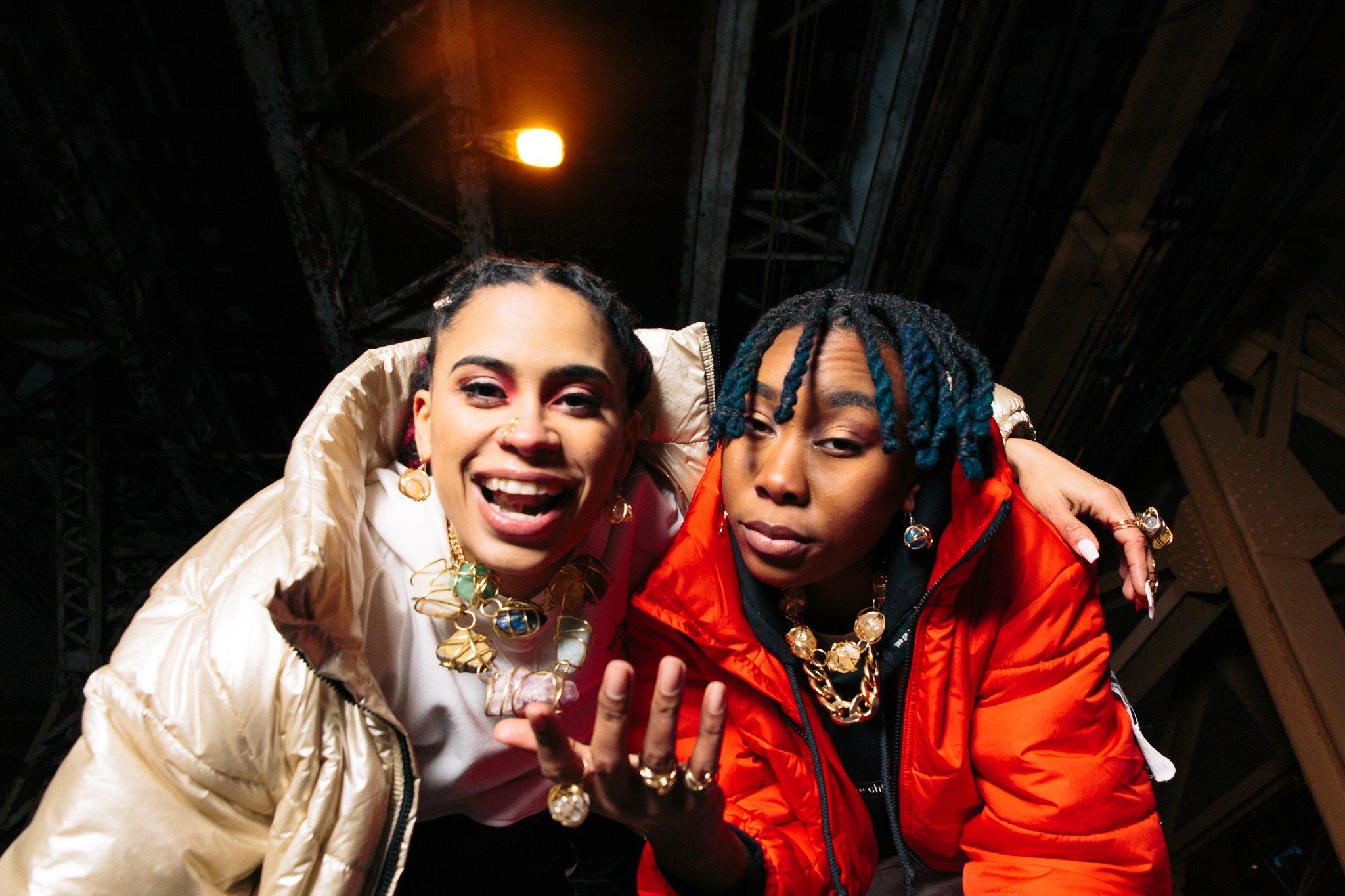
Mother Nature
news
Meet Mother Nature, The Chicago Rap Duo That Teach & Live Self-Expression Through Their Miseducation Of HipHop Youth Workshops
"We invite especially our young men to come out and just express themselves in a way that they are comfortable, which is hip-hop, music," TRUTH, one half of Mother Nature, recently told GRAMMY.com
For rap duo Mother Nature, music and education are inseparable. Since joining together in the music scene in college town Champaign, Illinois in 2015 and relocating to Chicago in 2016, Shasta Matthew and Tierney Reed, a.k.a. Klevah and TRUTH, have developed their Miseducation of HipHop workshop series concurrently with their own music careers.
The Miseducation of HipHop workshops are music-based, youth-focused programs that aim to “address and improve mental health issues in adolescents globally using the language of hip-hop,” according to their website.
Over 600 students have participated in Miseducation workshops since they began in 2015, including through partnerships with more established organizations like Guitars Over Guns and After School Matters. Though Klevah and TRUTH have modified each session depending on the number and needs of the students, they have focused on the shared self-expression of cyphers; group freestyle sessions.
A video from the workshop YouTube page (watch above) offers a moving example of the cypher. As his peers stand in a loose circle around him, a teen student raps about his efforts to cope with his cousin’s death with visible fake-it-til-you-make-it confidence. “We invite especially our young men to come out and just express themselves in a way that they are comfortable, which is hip-hop, music, rap,” TRUTH says via video call, from the Bronzeville apartment she shares with Klevah and collaborators from their Gr8Thinkaz crew.
“What you didn't see is because he got that vulnerable and spit what he spit, the next person on top of that had more to add to that narrative. The person after that had more to talk about the narrative and slowly became a place where like, alright, this ain't therapy, but it is,” Klevah adds. “You're coming here, you're speaking your truth, and you're gaining knowledge from others in the process.”
TRUTH and Klevah have continued to run workshops through the pandemic virtually, including their first classes for students in Los Angeles, as they sharpen their own skills through cyphers and recordings. Mother Nature’s upcoming mixtape SZNZ is produced entirely by BoatHouse, the house producer of Chicago indie label Closed Sessions, and features guest verses from local rappers like Valee, Sir Michael Rocks of the Cool Kids, and more.
Related: The OutKast College Course Teaching Students About The Post-Civil Rights South
GRAMMY.com spoke to TRUTH and Klevah by phone in mid-March about building relationships with their mentees, modeling authenticity to the younger generation, and expanding the Chicago rap scene.
This interview has been edited and condensed for length and clarity.
What’s new since you launched your first virtual workshops last summer?
TRUTH: We've been revamping, just getting things into the virtual sphere. We've expanded our team, we've been able to collaborate more with Guitars Over Guns and After School Matters and we are in the middle of doing a pilot program in L.A.
Klevah: The space that everyone is in educationally drives the need for our program. Schools are all doing this virtual portal type of thing. We kind of gauged our students, and they're not really learning as much as they were when they were in school [in-person]. I just think it makes it necessary, especially in Chicago, to be able to teach, but in a completely alternative way.
Originally, we're like, man, we got to do a tour where we're popping up at these schools, we're doing these lunchroom jams. But now we can probably impact even more students by being able to be nationwide from our living room. At the end of the day, we are going to have a university. Miseducation is gonna be big, I believe that we're going to impact a lot of students, we're going to pick a lot of young artists and help them find their pathway to success. So we're just along for the ride, you feeling me?
Your workshops are often specific to a school or organization. Do you have open events in addition to those, where you maintain relationships with past students?
TRUTH: We do a cypher called the Gr8Cypher with our larger collective the Gr8Thinkaz. We open it up to all Chicago, all of our mentees and things like that.
Klevah: It’s very intergenerational. The young homies, the big homies, even the little kids pop in, and get a part of that. It's really dope, because they'll come in just as confident and just as boisterous as the next person. I think that we end up practicing this in our daily lives, like our students become our teachers sometimes. Really, our students become our interns, our mentees, our producers. We're not just, you know, giving you a certificate. We're building with each other, and we genuinely care about you.
So whatever it is that you need, we’re gonna give you the game. And if there's room for us to collaborate and room for us to be more valuable to each other—it's definitely happened in the past—it's a really special situation when it does happen.
TRUTH: One of our tracks is produced by one of our mentees. Because we are expanding, and we have been able to touch more students quicker than we have in the past, we are figuring out how to increase the retention rate, so we've been just using social media day by day and making little group chats, so they know the door's always open, and they can always hit us up, whatever the case may be. If it's something specific, like you're trying to do beat production, you're trying to do graphic design, you know, anything outside of what we do specifically, well, we have homies that we can tap into then.
How has the educational work influenced your own music?
TRUTH: It makes us be more consistent, more intentional, definitely. Everything that we speak, it has to be real. We can't be all, "We over here doing this, we got money, we da da da da da." No, we’re manifesting, working towards it. And to be heavily consistent in the spiritual, I think is very vital.
As we dive into our classes, too, that's what captures a lot of students and what makes them open up the most, is when we’re talking about spirituality and meditation, those types of things. We all deal with anxiety and depression and all these different types of things, but hip-hop is an avenue that you can take that allows you to explore yourself in ways that you might not be able to talk to somebody off the bat.
Klevah: It's hard to separate those things. We definitely have our more adult content and the content that we specifically give to our kids, but it's really still all one and the same, you know what I'm saying? I think it's a beautiful thing. I think that it also reminds people that you can completely be yourself: this is who we are, we're educated humans. I've been mentoring since I've been out of high school, and it's so dope that I can take this with me on my journey through hip-hop.
Can you talk a little bit more about your idea of "real" and how you talk about that with your kids and being true to yourself in your lyrics?
Klevah: Man, this past week, our lesson was authenticity, what it means to be authentic to the self, how that sustains us, how that informs us, how that keeps us creative. The more that we dive into the things that make us weird, or the things that people don't understand, the things we don't understand about ourselves, it just creates new avenues to explore in yourself. For me, that’s what makes life continually interesting. How much more can I know myself? How much more can I be myself?
TRUTH: I feel like that allows for other people to gravitate to us, as well as make them more comfortable in their own skin. ‘Cause I'm out here, acting silly and doing myself, I think that allows for our kids to really think of that in a different way.
One of the activities that we do, we will listen to a song and break down the lyrics, like, "Do you agree with this? Do you think he’s telling the truth? Do you think this is reality?” Hip-hop is always, you know, flamboyant and hyperbole, but when we ask them about the lyrics that they gravitate towards, it be the emotional stuff, it be the more slow tempo type of vibes. They're really like, "Man, they're saying something that I connect with, internally." So they know what real is, but they also know when it's been fabricated.
How did the features on your new project come together?
TRUTH: The first idea was that we just wanted this to be very Chicago. It only makes it right for us to get all Chicago features, lowkey artists that people may not know, but also those big, underground legends of Chicago as well.
Klevah: We're trying to create this culture of collaboration, cypher building, and we want to take that to the industry.
TRUTH: That's one of our biggest things: we want to be the artists that shake the scene so hard that we bring the old Gs out of retirement. With the homies, that was like, "Yo G, we need a verse, I'm about to send you this, send it back in like, two days."
Klevah: We already could hear you on it, but also if this ends up being one of the tapes that really goes up, you know, makes Mother Nature bigger, then I really need my homies on here with me.
You just did a virtual show with Freddie Old Soul, who features on the project. How was that performance?
Klevah: We needed it. We needed to get out of the house, be around some Black girl geniuses. I think that we’re getting used to small spaces, or going places and only being around a few people. But, I think that it just allows for us all to intimately connect, and the energy was just clear on camera. It gave us an opportunity to go crazy. It was dope. We miss performing
TRUTH: That was our first time performing "Momentz," so that was beautiful. That was no rehearsal. That was just what we were feeling. It felt different, like, ooh yeah we got to stay in this bag, bro.
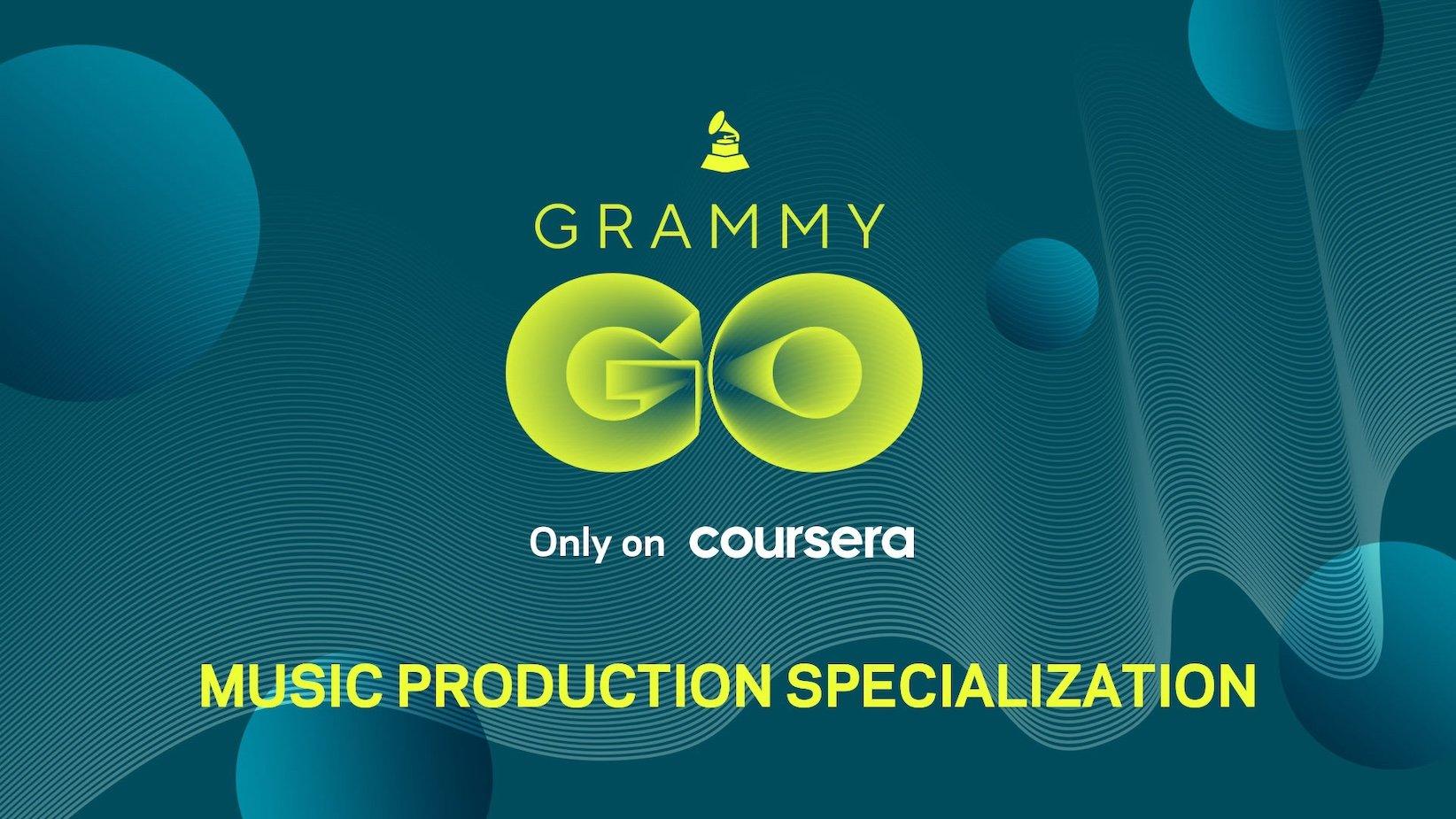
Graphic Courtesy of the Recording Academy
news
The New GRAMMY GO Music Production Course Is Now Open: Featuring GRAMMY Winners Hit-Boy, CIRKUT, Judith Sherman & More
Enrollment is now open for GRAMMY GO's new specialization, "Music Production: Crafting Award-Worthy Songs," featuring appearances by GRAMMY winners and nominees. Learn music production and creative strategies from today's industry leaders.
The Recording Academy continues its mission to empower music's next generation with the launch of its second specialization in the GRAMMY GO platform: "Music Production: Crafting Award-Worthy Songs."
This new course, a partnership between the Recording Academy and leading online learning platform Coursera, aims to bolster the technological and audio skills of music producers of all levels. The course, taught by Howard University professor and GRAMMY nominee Carolyn Malachi, features appearances by three-time GRAMMY winner and rap icon Hit-Boy, chart-topping and GRAMMY-winning producer/songwriter CIRKUT, artist and celebrity vocal coach Stevie Mackey, five-time GRAMMY nominee and Recording Academy CEO Harvey Mason jr., and 15-time GRAMMY winner Judith Sherman.
Enrollment for "Music Production: Crafting Award-Worthy Songs" is open now.
Mixing a unique blend of theory and practice, the course teaches music creators of all levels the advanced skills and tools to develop the mindset and confidence of an experienced producer and produce songs of the highest industry standards across all genres. Explore the wide-ranging roles of a music producer, develop critical listening and analysis skills, and master the technical aspects to create music and compositions that cut through the noise. The course's applied learning approach allows learners to sharpen their pre-production skills, utilize Digital Audio Workstations (DAWs) effectively, and produce vocals, instrumentals and samples collaboratively. Through critical listening exercises and discussions, learners will refine their abilities to deliver professional-quality demos.
To celebrate the launch, the Recording Academy will host an Instagram Live session today (Tuesday, July 23) at 4 p.m. PT/7 p.m. ET with Harvey Mason jr. and Stevie Mackey. The session will include a discussion on the evolving role of music producers, strategies for working with artists, key elements of top-notch productions, common mixing mistakes, and tips for keeping the creative process fresh. Enrollment details for the course will also be shared during the live session.
Building on the success of its first specialization, "Building Your Audience for Music Professionals," GRAMMY GO continues to offer industry-focused education tailored for emerging and established music creators and professionals alike. The innovative platform provides learners with real-time insights from leading music industry figures, ensuring the content remains practical and up to date. GRAMMY GO will also serve as an essential tool in the Recording Academy's global expansion into Africa and the Middle East, empowering music creators through enhanced training, bridging knowledge gaps, and fostering connections within the global music community.
Launched in April in partnership with Coursera, GRAMMY GO is the Recording Academy's first creator-to-creator platform, offering innovative courses tailored for both emerging and established music professionals. The initiative accelerates the Academy's global mission and reinforces its commitment to music education, providing a seamless bridge between all Academy initiatives.
Learn more about GRAMMY GO and the "Music Production: Crafting Award-Worthy Songs" and "Building Your Audience for Music Professionals" specializations.
More Music Education News & Initiatives
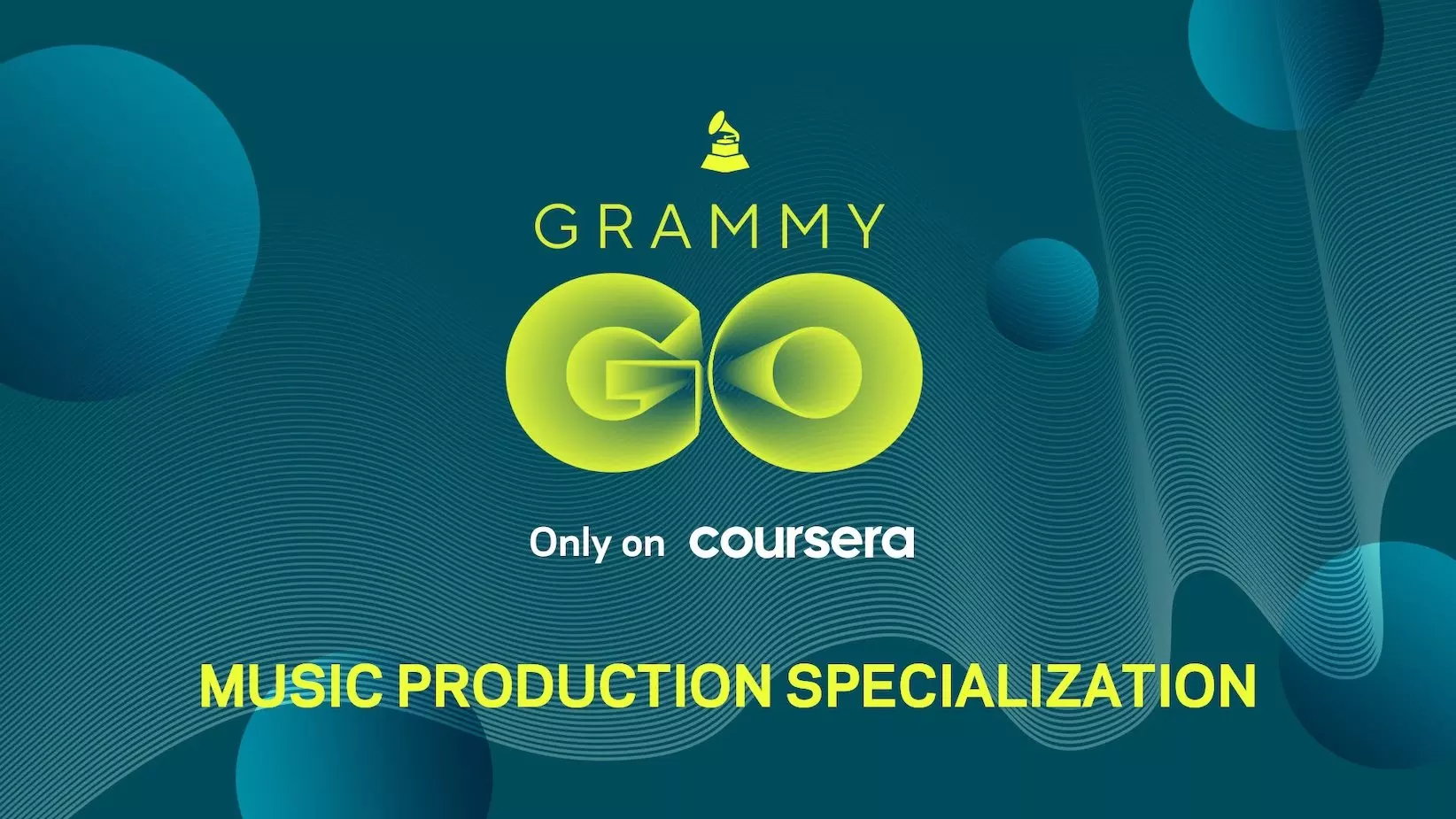
The New GRAMMY GO Music Production Course Is Now Open: Featuring GRAMMY Winners Hit-Boy, CIRKUT, Judith Sherman & More
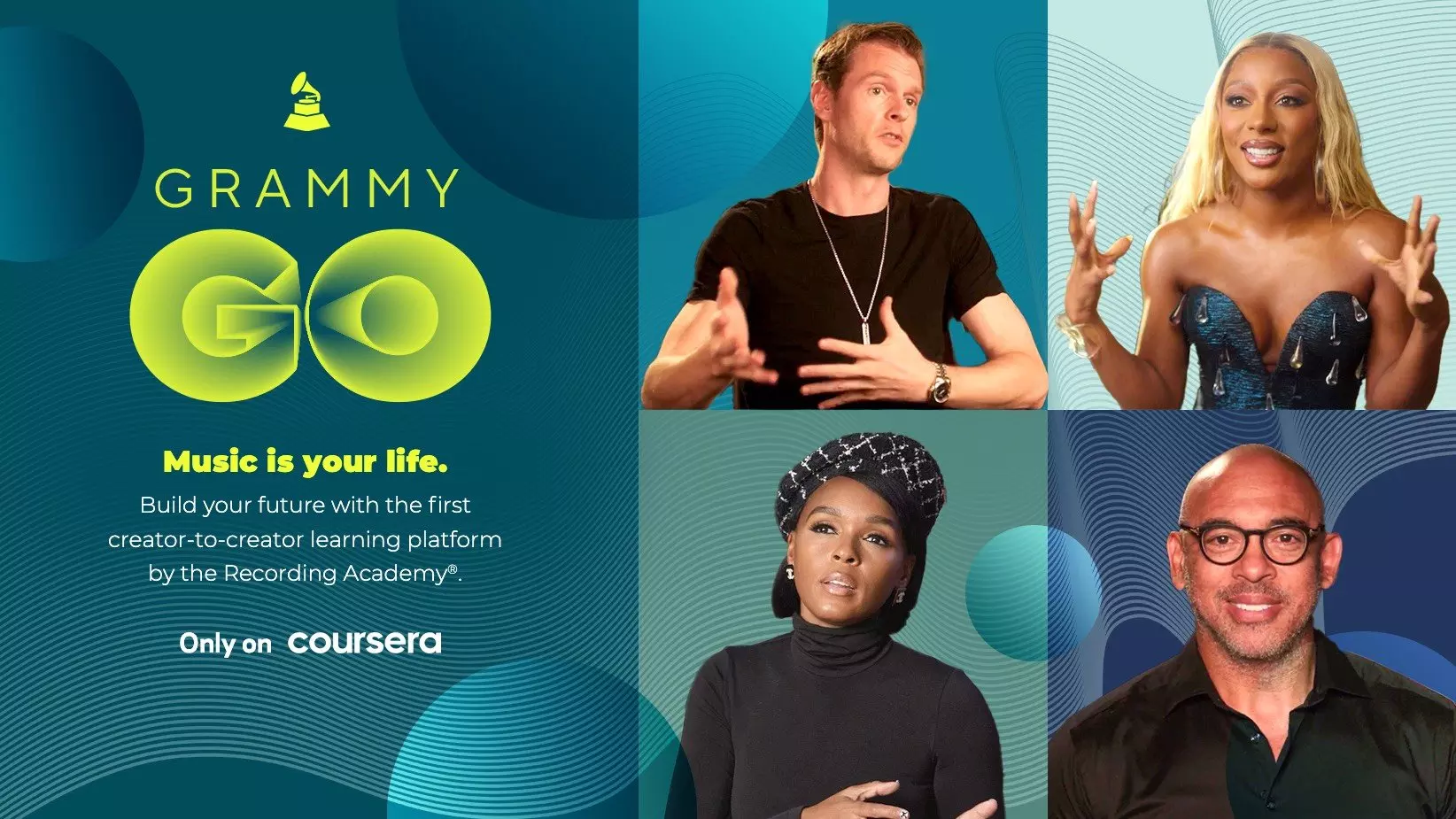
Recording Academy & Coursera Partner To Launch GRAMMY GO Online Learning Initiative
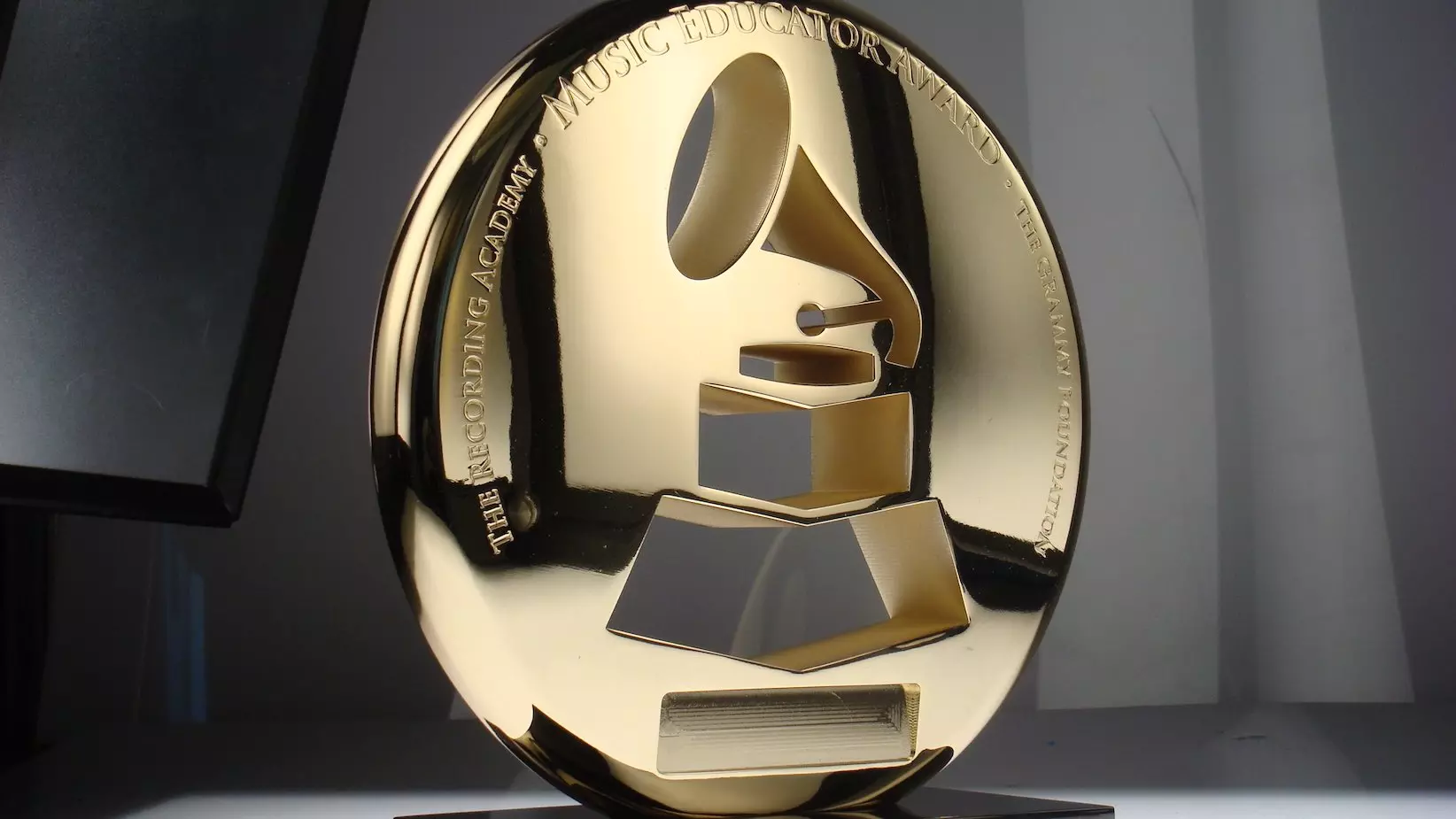
25 Semifinalists Announced For The 2024 Music Educator Award
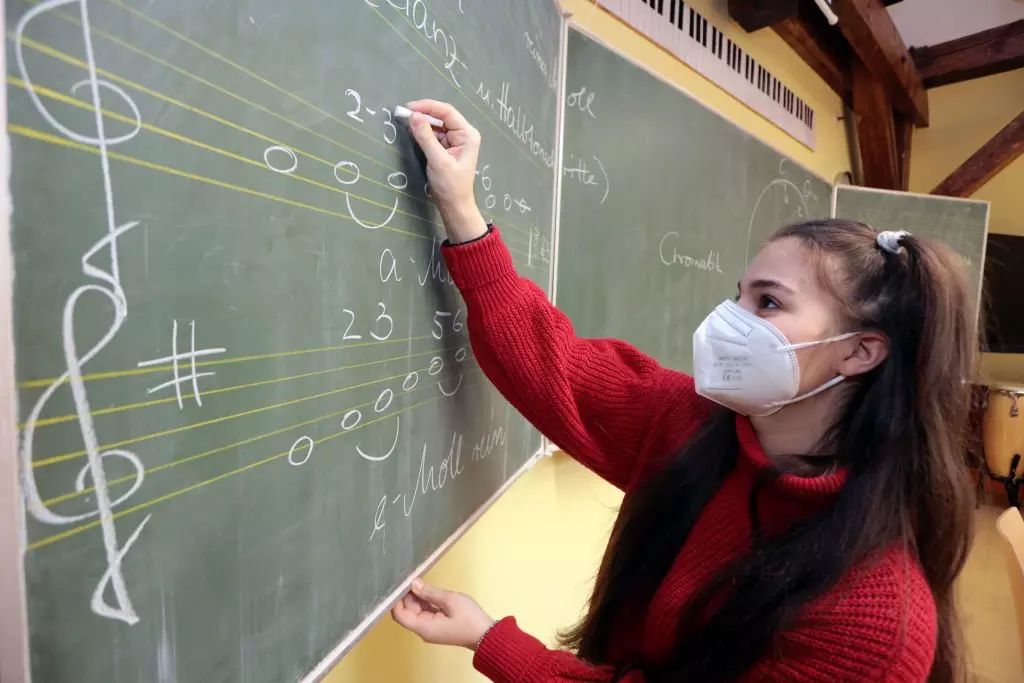
5 Music Teachers Share The Transformative Power Of Music Education
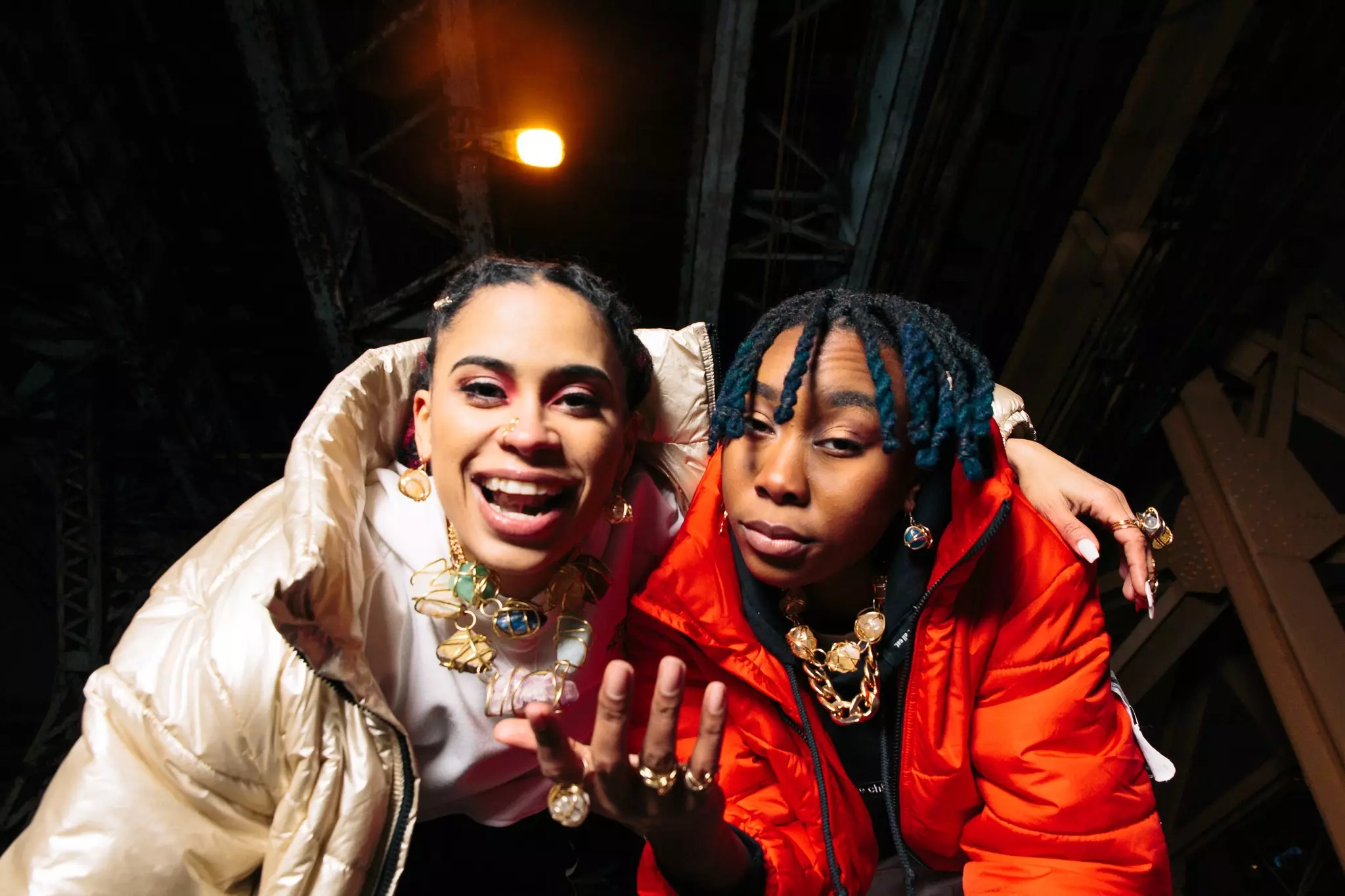
Meet Mother Nature, The Chicago Rap Duo That Teach & Live Self-Expression Through Their Miseducation Of HipHop Youth Workshops
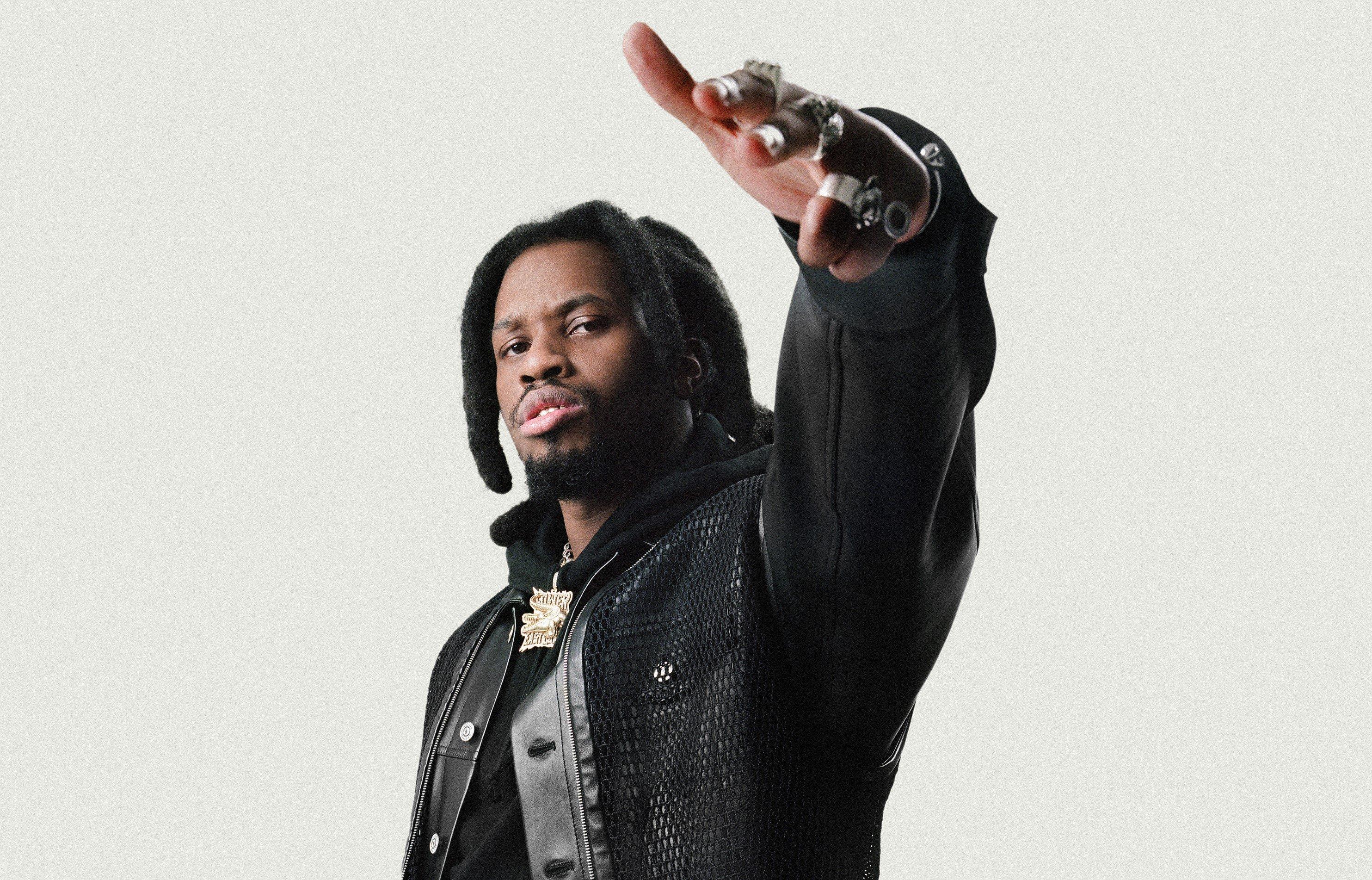
Photo: Giovanni Mourin
interview
Denzel Curry Returns To The Mischievous South: "I've Been Trying To Do This For The Longest"
Over a decade after he released 'King of the Mischievous South Vol. 1,' Denzel Curry is back with 'Vol. 2.' The Miami rapper details his love of Southern hip-hop, working on multiple projects, and the importance of staying real.
Denzel Curry isn’t typically one for repetition. His recent run of critically acclaimed projects have all contrasted in concept and musicality.
The Miami Gardens native has cascaded through boom-bap, synth-soaked trap metal, and cloud rap throughout his catalog. But on his upcoming project, King of the Mischievous South Vol. 2, Curry returns to the muddied, subwoofer-thudding soundscape that he captured on the first installment back in 2012.
Curry was just 16 when he released King of the Mischievous South Vol. 1 Underground Tape 1996]. "I was a kid, man," Curry tells GRAMMY.com. "I was just trying to emulate my favorite rappers at the time who really represented the South. That was pretty much what I was on at the time – the Soulja Slims, the No Limits, but mostly Three 6 Mafia. And then I just put Miami culture on top of that."
Curry first explored the rough-cut "phonk" of Southern acts like DJ Screw and Pimp C as a teenager. His first mixtape, King Remembered Underground Tape 1991-1995, caught the attention of then-rising rapper and producer SpaceGhostPurrp. He shared Curry’s project on his social media accounts, making him an official member of South Florida’s Raider Klan.
Read more: A Guide To Southern Hip-Hop: Definitive Releases, Artists & Subgenres From The Dirty South
The now-defunct group is well behind Curry, who’s ascended from the infancy of his early SoundCloud days to mainstream success. But the rapid-fire delivery and hazy, rough-cut sounds of early Southern rap are still soaked into his musical fibers.
Reignited by the same musical heroes that led to Vol. 1, Curry is comfortable in old sonic form. Vol. 2's lead singles "Hot One" (feat. A$AP Ferg and TiaCorine) and "Black Flag Freestyle" with That Mexican OT fully capture the sharp-edged sound that stretched from Port Arthur, Texas to the Carolinas.
The rapper wanted to go back to the KOTMS series nearly a decade ago, but other projects and outside ventures derailed his return. "I tried to do this thing multiple times," Curry tells GRAMMY.com. "I remember revisiting a [social media post] from 2015 that was like, ‘KOTMS Vol. 2055 is now going to be called Imperial.’ I’ve been trying to do this for the longest."
A string of bouncy, syrup-pouring, and playalistic Southern trap songs led him back to familiar grounds. The new 15-song capsule features Juicy J, 2 Chainz, Project Pat, That Mexican OT, Maxo Kream, and others inspired by the same pioneers that fall below the Mason-Dixon line.
GRAMMY.com sat down with Curry before the release of King of the Mischievous South Vol. 2 on July 19. The "Ultimate" rapper revealed his "Big Ultra" persona, his ability to crank out hits from his bedroom, and his recent discoveries being "outside."
This interview has been lightly edited for clarity and length.
What inspired you to revisit the 'King of the Mischievous South' series?
I was making two projects at once, and there was a through-line from the second half of the project. The second one I was working on kind of just manifested itself into what it is today, 12 years later. And it’s called King of the Mischievous South Vol. 2 because it has the same sonics as the first one.
You mentioned Three 6 Mafia being a big inspiration for Vol. 1. But what about Vol. 2?
The first KOTMS was obviously Three 6 Mafia, and then Lord Infamous was really the person I looked up to, God rest his soul. I get my rap style from him — the rapid flows and stuff like that. You can even hear it on "Walkin’" and "Clout Cobain." But since I’m from Miami, I’m talking about stuff that predominantly happens in Miami. And I’m influenced by Soulja Slim, Master P, DJ Screw, UGK, Trina, Trick Daddy, and Rick Ross.
How did you juggle the two different projects at once?
When I wasn’t working on one project, I was working on the other one. Sometimes I would be working on the same two projects on the same day. I was like, If this one won’t see the light of day until next year, this one has to hold fans over. And the one that was supposed to hold fans over ended up having a crazy through-line.
What were the studio sessions like?
When it came down to the production, I was just making these songs on the fly. A couple came out of Ultraground sessions, but the majority of the songs were made in my bed — just how it was with the first one. "Hot One" was made in my house downstairs, and "Hit The Floor" was made in a random room in an AirBnb. And I think the rest of the songs were made in an actual studio.
I was just flowing, doing my thing, and figuring things out. I was working on one project, and when I wasn’t getting called back to the studio, I was working on another one on the side. The grind didn’t stop.
Was there an element or feature that you really wanted to explore?
I just knew I wanted certain rappers to be featured on [project]. When I was working on "Set It," I originally wanted PlayThatBoiZay. But he didn’t get the record done or whatever the case may be. So, I sent it to Maxo Kream, and he ended up just doing it. And when I made "Wish List," I got Armani White on it. Me and him came off of doing "Goated," so getting that record done was really simple. He pulled up to the studio and he said, "This is tight," and then jumped on the record.
Some stuff didn’t make the cut because we couldn’t get certain people. But the majority of the stuff that made the cut, we were like, "Yes, we did that." Then having people like Ski Mask the Slump God, 2 Chainz, Project Pat, and Juicy J — all these guys played a role. I’m getting people from the South, whether they’re from Texas, Florida, or the Carolinas. And even people outside of the South, like A$AP Ferg and Armani White, they’re all influenced by the same artists.
Learn more: A Guide To Texas Hip-Hop: Definitive Releases, Artists & Events
Your persona on the album, "Big Ultra." Break that down for me.
This is how the name came about — my boy’s nickname is Mr. Don’t Fold. It’s kind of a play on "Mr. Don’t Play," so we came up with "Big Ultra" because I’m doing "ultraground" stuff. It wasn’t on some superpower s—, it’s just me, pretty much. It’s how I wanted to be presented on this tape. It’s just me at the end of the day, it’s no persona.
You’ve been in the rap game for a while. Do you consider yourself a veteran?
I think I’m mostly in a formation period because my best years haven’t even happened yet. I feel like I’m just getting my reps in, preparing myself for my 30s. You know, going through the bulls—, having good times, having bad times.
By the time I get to 30, 35, and 40 — God willing — I could have a fruitful career and not be backtracked by dumb s—. I see myself as someone with a lot to offer because I’m still young.
Do you care about garnering more fame or acclaim? Or is there no need for it?
All my projects are critically acclaimed. The main thing is staying good at what I do. That comes with a lot of effort, a lot of studying, and a lot of work. I take pride in my job and I have fun making music.
I think the hardest part is putting myself out there and being visible. I’m starting to understand that’s what I had to do. I got asked the same question five times in a row about when my album was dropping. I’ve been saying July 19 for the longest. Like, people really haven’t been paying attention? C’mon, bro.
What do you feel is the next step?
I’m just trying to be more visible where the younger generation is at. Most people know me for "Ultimate," "Clout Cobain," or the [XXL Freshman Class] Cypher if I’m being totally real with you. But in due time, everybody has blessings in certain parts of their career. And I’ve been blessed to have a career this long.
All I have to do is just deliver, be real with myself, and do what I have to do. I got to lean into being outside. I didn’t know who messed with me or who liked my stuff until I started going outside and talking to people. You never know who rocks with you until you're outside.
As far as the music and experience, where does the album rank for you?
I didn’t think about where I’d rank this. We had a whole decade of producing great records, and people look forward to the album experience more than the single when it comes to me. This is what it is, and I just want people to enjoy it. It’s not something to put too much effort or thought into. It’s something you can bump into the club, or you could go to a show and turn up to it. That’s where I’m at with it.
Are there any other sounds or genres you want to explore?
It’s going to happen when it’s supposed to happen naturally. But I do want to explore pop and R&B a year from now. I want people to be able to sing my songs and stuff like that.
Latest Rap News & Music

5 Ways Mac Dre's Final Living Albums Shaped Bay Area Rap

Denzel Curry Returns To The Mischievous South: "I've Been Trying To Do This For The Longest"

5 Rising L.A. Rappers To Know: Jayson Cash, 310babii & More
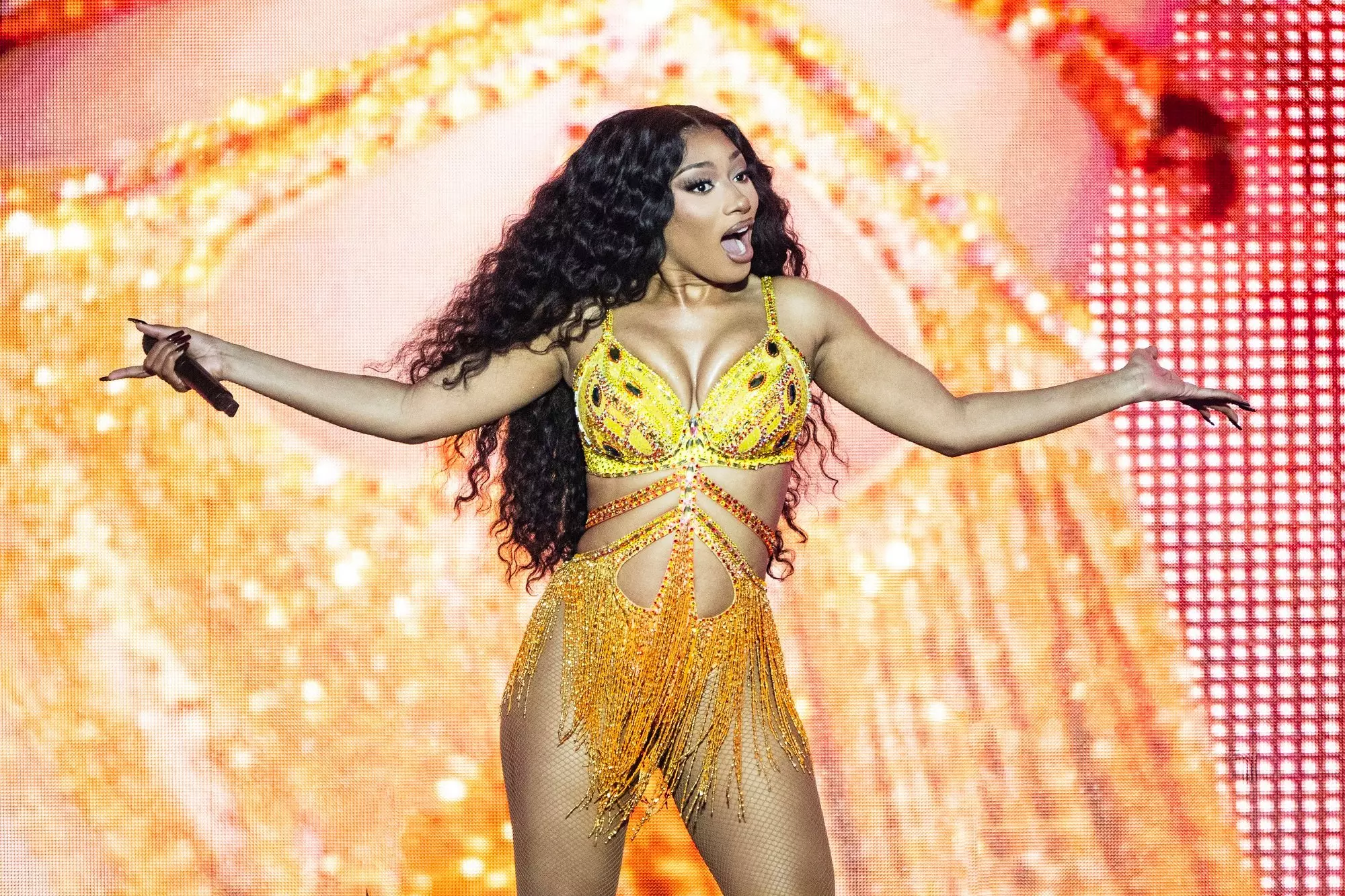
6 Takeaways From Megan Thee Stallion's 'Megan': Snakes, Shots & Self-Assurance

Celebrate 40 Years Of Def Jam With 15 Albums That Show Its Influence & Legacy
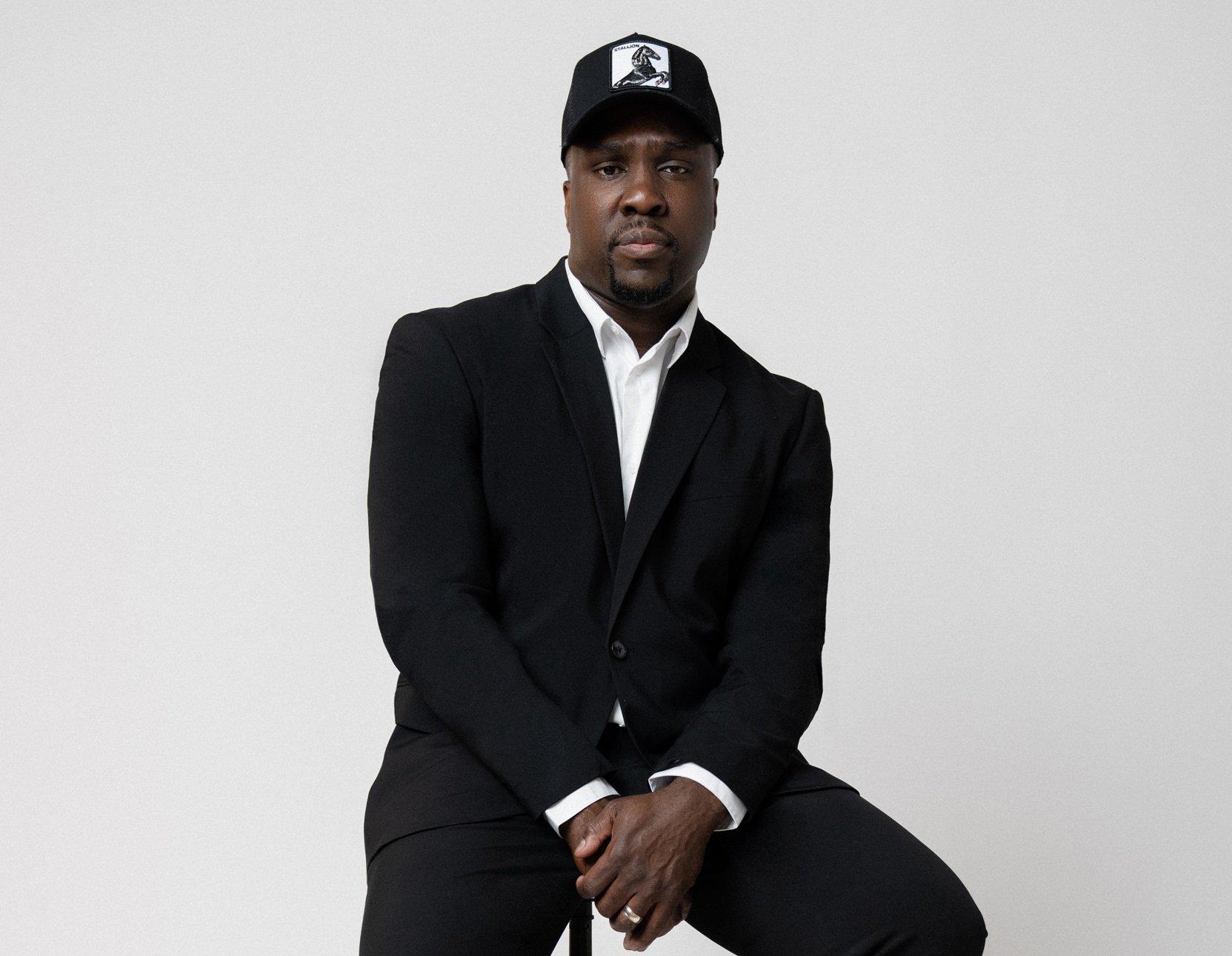
Photo: Oye Diran
interview
Meet Derrick Hodge, The Composer Orchestrating Hip-Hop's Symphony
From Nas' 'Illmatic' to modern hip-hop symphonies, Derrick Hodge seamlessly bridges the worlds of classical and hip-hop music, bringing orchestral elegance to iconic rap anthems.
Over the last 50 years, hip-hop culture has shown it can catalyze trends in fashion and music across numerous styles and genres, from streetwear to classical music. On June 30, Nas took his place at Red Rocks Amphitheater in a full tuxedo, blending the worlds of hip-hop and Black Tie once again, with the help of Derrick Hodge.
On this warm summer eve in Morrison, Colorado, Nas performed his opus, Illmatic, with Hodge conducting the Colorado Symphony Orchestra. The show marked a belated 30-year celebration of the album, originally released on April 19, 1994.
As Nas delivered his icy rhymes on classics like "N.Y. State of Mind," "Memory Lane (Sittin' in da Park)," and "Halftime," the orchestra held down the beat with a wave of Hodge's baton. The winds, strings, and percussion seamlessly transitioned from underscoring Nas's lyrics with sweeping harmonic layers to leading melodic orchestral flourishes and interludes. For the album's final track, "Ain't Hard to Tell," the orchestra expanded on Michael Jackson's "Human Nature," expertly sampled originally by producer Large Professor.
Derrick Hodge is a pivotal figure in modern music. His career spans writing and performing the famous bassline on Common's "Be," composing for Spike Lee's HBO documentary "When the Levees Broke: A Requiem in Four Acts," and his own solo career that includes his latest experimental jazz album, COLOR OF NOIZE. Hodge also made history by bringing hip-hop to the Kennedy Center with orchestra accompaniments for Illmatic to celebrate the album's 20th anniversary in 2014.
"That was the first time hip-hop was accepted in those walls," Hodge says sitting backstage at Red Rocks. It was also the first time Hodge composed orchestral accompaniments to a hip-hop album.
Since then, Hodge has composed symphonic works for other rappers including Jeezy and Common, and is set to deliver a symphonic rendition of Anderson .Paak's 2016 album, Malibu, at the Hollywood Bowl in September.
Hodge's passion for orchestral composition began when he was very young. He played upright bass by age seven and continued to practice classical composition in his spare moments while touring as a bassist with Terence Blanchard and Robert Glasper. On planes. In dressing rooms. In the van to and from the gig.
"It started as a dream. I didn't know how it was going to be realized. My only way to pursue that dream was just to do it without an opportunity in sight," Hodge says. "Who would've known that all that time people were watching? Friends were watching and word-of-mouth."
His dedication and word-of-mouth reputation eventually led Nas to entrust him with the orchestral arrangements for Illmatic. He asked Hodge and another arranger, Tim Davies, to write for the performance at the Kennedy Center.
"[Nas] didn't know much about me at all," Hodge says. "For him to trust how I was going to paint that story for an album that is very important to him and important to the culture, I have not taken that for granted."
Read more: How 'Illmatic' Defined East Coast Rap: Nas’ Landmark Debut Turns 30
Those parts Hodge wrote for the Kennedy Center are the same parts he conducted at Red Rocks. Over a decade later, he channels the same drive and hunger he had when he was practicing his compositions between gigs. "I hope that I never let go of that. I feel like these opportunities keep coming because I'm approaching each one with that conviction. Like this could be my last."
Before this latest performance, GRAMMY.com spoke with Hodge about bridging the worlds of classical and hip-hop, influencing the next generation of classical musicians, and how his experience as a bassist helps him lead an orchestra.
Throughout history, orchestral music has been celebrated by the highest echelons of society, whereas hip-hop has often been shunned by that echelon. What is it like for you to bring those two worlds together?
I love it. I've embraced the opportunity since day one. I was a young man showing up with Timberlands on and cornrows in my hair, and I knew the tendency to act and move in a certain perception was there. I knew then I have to represent hope in everything I do. I choose to this day to walk with a certain pair of blinders on because I feel like it's necessary. Because of that I never worry about how the classical world perceives me.
Oftentimes I'll stand before them and I know there may be questions but the love I show them, what I demand of them, and how I show appreciation when they take the music seriously…almost every situation has led to lifelong friendships.
I believe that's been part of my purpose. It's not even been to change minds or change perceptions. In serving the moment, even when people have preconceptions, they're in front of me playing music I wrote. How do I serve them best? How do I bring out the best in them just like I'm trying to bring out the best in the storyline of a hip-hop artist that may not relate to their story at all? The answer is just to be selfless. That's eliminated the distraction of trying to convince minds.
With that unifying principle, would you consider conducting the orchestra the same thing as playing bass with Robert Glasper?
The way I try to be selfless and serve the moment, it's no different. Maybe the skillset that's required. For example, conducting or working within a framework of composed music requires a certain way of making sure everybody's on the same page so we can get through these things on time and keep going. But I serve that moment no differently than when myself and Robert Glasper, Chris Dave, Casey Benjamin RIP, are creating a song in the moment.
I actually don't even think about how one thing is affecting the other. I will say the beauty of the bass and the bassists that have influenced me — from Ron Carter to the great Marcus Miller, Victor Wooten — is the way they can stand out while never abandoning the emotion of the moment. Remembering what is perceived as the role of the bass and how it glues things in a unique way. Harmonically and rhythmically. Being aware of the responsibility of being aware of everything.
I think that's one thing that's carried over to orchestrating and thinking about balances and how to convey emotion. I think some things are innate with bassists. We're always navigating through harmony and having a conversation through a lens of placement with drums. Placement with the diction if they're singers or rappers. There are a lot of decisions bass players are making in the moment that we don't even think about. It's just secondhand. But it's how are we serving what's necessary to make the conversation unified. I think that's one thing that's served me well in composition.
What's one song you're particularly excited to dive into for the Anderson .Paak arrangements?
So I'm intentionally not thinking in that way because we decided to treat it like a movie. Start to finish no matter what. With that in mind, I'm trying to approach it as if the whole thing is an arcing story because I didn't realize the succession of how he placed that record was really important to him.
**Hip-hop is often a very minimalist genre while an orchestra is frequently the opposite with dozens of instruments. How do you maintain that minimalist feel when writing orchestra parts for hip-hop albums like Illmatic?**
I'm so glad you asked that because that was the biggest overarching thing I had to deal with on the first one. With Nas. Because Illmatic, people love that as it is. Every little thing. It wasn't just the production. Nas's diction in between it, how he wrote it, how he told the story, and the pace he spoke through it. That's what made it. So the biggest thing is how do I honor that but also try to tell the story that honors the narrative of symphonic works? [The orchestra is] fully involved. How do I do things in a way where they are engaged without forcing them?
Illmatic was a part of my soundtrack. So I started with the song that meant the most to me at that time: "The World is Yours." That was the first piece I finished, and I emailed Pete Rock and asked "How is this feeling to you?" If the spirit of the song is speaking to him then I feel like this is something I can give to the people no matter how I feel about it. And he gave the thumbs up.
So instead of overly trying to prove a point within the flow of the lyrics, how do we pick those moments when the orchestra is exposed? Let them be fully exposed. Let them tell a story leading into that. Make what they do best marry well into what Nas and the spirit of hip-hop and hip-hop sampling do best. And then let there be a dance in between.
That first [Illmatic] show was a great experiment for me. I try to carve out moments whenever I can. Let me figure out what's a story that can combine this moment with this moment. That's become the beauty. Especially within the rap genre. To let something new that they're not familiar with lead into this story.
*Derrick Hodge conducts the Colorado Symphony Orchestra at Red Rocks* | Amanda Tipton
The orchestra is just as excited to play it as Nas is to have them behind him.
And that reflects my story. I try to dedicate more time to thinking about that, and that normally ends up reciprocated back in the way they're phrasing. In the way they're honoring the bowings. In the way they're honoring the breaths that I wrote in for them. They start to honor that in a way because they know we're coming to try and have a conversation with these orchestras. That's one thing I try to make sure no matter what. It's a conversation and that goes back to the moment as well.
I've seen other composers put an orchestral touch on hip-hop in recent years. For example, Miguel Atwood-Ferguson wrote orchestral parts to celebrate Biggie's 50th birthday. Would you say integrating an orchestra into hip-hop is becoming more popular?
It has become popular, especially in terms of catching the eyes of a lot of the different symphonies that might not have opened up their doors to that as frequently in the past. These opportunities — I appreciate the love shown where my name is mentioned in terms of the inception of things. But I approach it with a lot of gratitude because others were doing it and were willing to honor the music the same. There are many that wish they had that opportunity so I try to represent them.
With these more modern applications of orchestral music, I feel like there will be an explosion of talent within the classical realm in the next few years. Kids will think it's cool to play classical again.
The possibility of that just brings joy to me. Not just because it's a spark, but hopefully the feeling in the music they relate to. Hopefully there is something in it, aside from seeing it done, that feels that it relates to their story. I have confidence if I'm true to myself, hopefully, each time in the music it's going to feel like it's something relevant to the people. The more I can help foster platforms where people are free to be themselves, and where they can honor the music—I hope that mentality becomes infectious.
More Rap News

5 Ways Mac Dre's Final Living Albums Shaped Bay Area Rap

Denzel Curry Returns To The Mischievous South: "I've Been Trying To Do This For The Longest"

5 Rising L.A. Rappers To Know: Jayson Cash, 310babii & More

6 Takeaways From Megan Thee Stallion's 'Megan': Snakes, Shots & Self-Assurance

Celebrate 40 Years Of Def Jam With 15 Albums That Show Its Influence & Legacy

Photo: Amy Lee
list
5 Rising L.A. Rappers To Know: Jayson Cash, 310babii & More
From San Diego to the Bay Area, Seattle and beyond, the West Coast bursts with talent. Los Angeles is at the heart of this expanse, and these five rappers are just a few who are showcasing the vibrant sounds of West Coast hip-hop.
GRAMMY winners Kendrick Lamar and Mustard have long repped their California roots. Earlier this summer, their powerhouse anthem "Not Like Us" brought West Coast rap back to its roots and shone a global spotlight on the scene.
Lamar and Mustard are at the forefront of a renaissance in West Coast rap. Their shared roots in Southern California cities — Mustard from Los Angeles and Kendrick from Compton — adds authenticity and resonance to their partnership. Their undeniable chemistry was on display in the video for "Not Like Us," which received a million views less than an hour after its release.
Mustard's signature beats and Lamar's profound lyricism has resurfaced the sound and culture that makes West Coast rap so unique and paved the way for a new generation of artists. All signs suggest that another impactful collaboration may appear on Mustard's upcoming album, Faith of A Mustard Seed.
Learn more: A Guide To Southern California Hip-Hop: Definitive Releases, Artists & Subgenres From L.A. & Beyond
Kendrick Lamar headlined the electrifying Pop Out concert on Juneteenth, which also featured sets from Mustard and DJ Hed. The event saw a handful of L.A. rappers, opening for Lamar in a showcase of the vibrant talent that defines the region's rap scene.
The West Coast is a vast reservoir of talent, stretching from the Bay Area to Seattle. At the heart of this creative expanse is Los Angeles, which brings fresh perspectives, innovative styles, and renewed energy to hip-hop, ensuring the genre thrives. With the stage set for these newcomers to shine, it's the perfect time to take a closer look at some of the rising talents poised to impact the rap scene. While this list only scratches the surface, it offers a glimpse into the diverse and exciting talent from SoCal, the epicenter of the West.
Blxst
Arising from Los Angeles, Blxst initially played the background as a producer but soon demonstrated his ability to excel across all facets of music creation. Blxst's breakout moment came with his platinum-certified single "Chosen," which solidified his place in the music industry. His collaboration on Kendrick Lamar's "Die Hard" from Mr. Morale And The Big Steppers further showcased his skill for crafting hooks that elevate tracks, resulting in two GRAMMY nominations.
As he prepares to release his debut album, I'll Always Come Find You on July 19, Blxst stands at a pivotal point in his career. With a great resume already to his name, his forthcoming album promises to showcase his undeniable talent and leave a lasting impact on the West Coast music scene.
Bino Rideaux
Bino Rideaux is a South Central native and frequent collaborator with the GRAMMY-winning rapper Nipsey Hussle. He is the only artist to have a joint project with Hussle, No Pressure, released before the prolific rapper's untimely death. Rideaux has hinted at having a treasure of unreleased music with Hussle, saved for the perfect moment and album.
Rideaux is known for creating tracks that get the city outside and dancing. He has made three beloved projects with Blxst, titled Sixtape, Sixtape 2, and Sixtape 3 resulting in sold-out shows and a special place in West Coast Rap fans' hearts. Endorsed by industry heavyweights like Young Thug, Rideaux continues to carve his path at his own pace. His journey is nothing short of a marathon, echoing the enduring legacy of his mentor.
Kalan.FrFr
Kalan.FrFr, whose name stands for "For Real For Real," is an artist whose music is as genuine as his name suggests. Growing up in Compton and Carson, Kalan.FrFr has always stayed true to his roots, and exudes the unyielding confidence essential to making it in the City of Angels.
His breakthrough mixtape, TwoFr, showcased his ability to shine without major features, delivering verses with catchy hooks and melodic rap. He's shown he's not confined to one sound, delivering vulnerable tracks like "Going Through Things'' and "Never Lose You." His EP Make the West Great Again, Kalan.FrFr both proves his loyalty to his origins and highlights his versatility. Kalan.FrFr's signature punch-in, no-writing-lyrics-down style keeps his fans on their toes, ensuring that whatever comes next is unpredictable but authentic.
Jayson Cash
Jayson Cash, a rapper hailing from Carson — the same city as TDE artist Ab-Soul — stays true to West Coast rap, from his lyrics to his beat selection. Listening to Jayson Cash's music is like diving into a vivid life narrative. His prowess as a lyricist and storyteller shines through in every verse. He gives his fans an insight into his journey, making it a relatable music experience.
Cash made waves with his debut mixtape, Read The Room, and scored a Mustard beat on the song "Top Down." Two years later, their collaboration continues, with Cash writing on Mustard's upcoming album. Though often seen as an underdog, Cash is not to be underestimated, earning cosigns from West Coast legends like Suga Free and Snoop Dogg. His latest project, Alright Bet, includes a notable feature from Dom Kennedy.
310babii
310babii has achieved platinum-selling status at just 18 years old, while successfully graduating high school. Yet 310babii's career began in seventh grade, when he recording songs on his phone showing early signs of motivation and creativity. His 2023 breakout hit "Soak City (Do It)" quickly gained traction on TikTok — and caught the ears of Travis Scott and NFL player CJ Stroud.
As the song grew in popularity, it led to a remix produced by Mustard, who invited the Inglewood native to join him onstage during his set at The Pop Out. 310babii's innovative spirit shines through in his distinctive visuals, exemplified by the captivating video for his song "Back It Up." His recent debut album, Nights and Weekends, released in February, underscores his evolving talent and promise within the music industry.
Latest News & Exclusive Videos
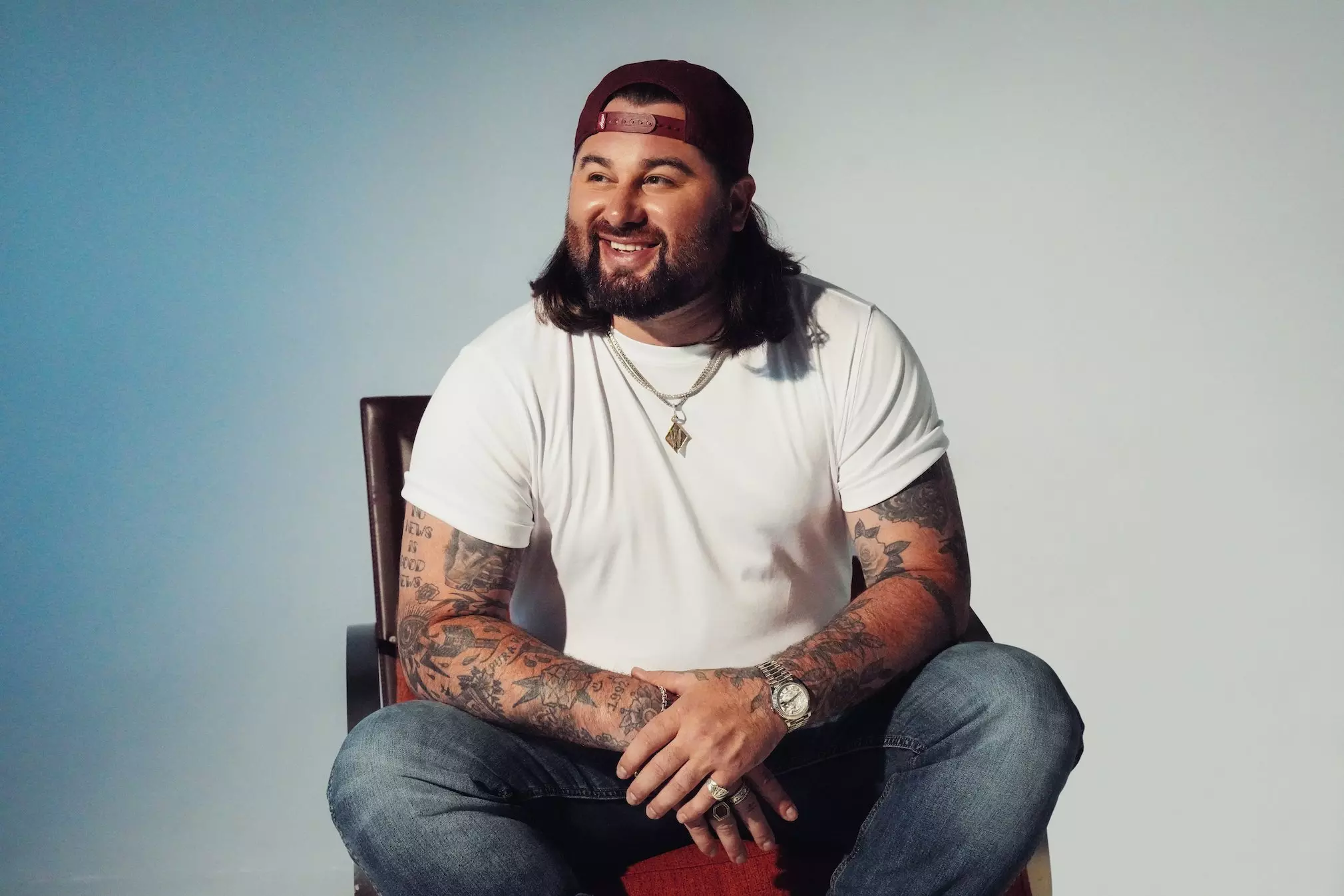
Koe Wetzel On How New Album '9 Lives' Helped Him Tap Into His Feelings

The New GRAMMY GO Music Production Course Is Now Open: Featuring GRAMMY Winners Hit-Boy, CIRKUT, Judith Sherman & More

Ayoni Performs "Bitter In Love"
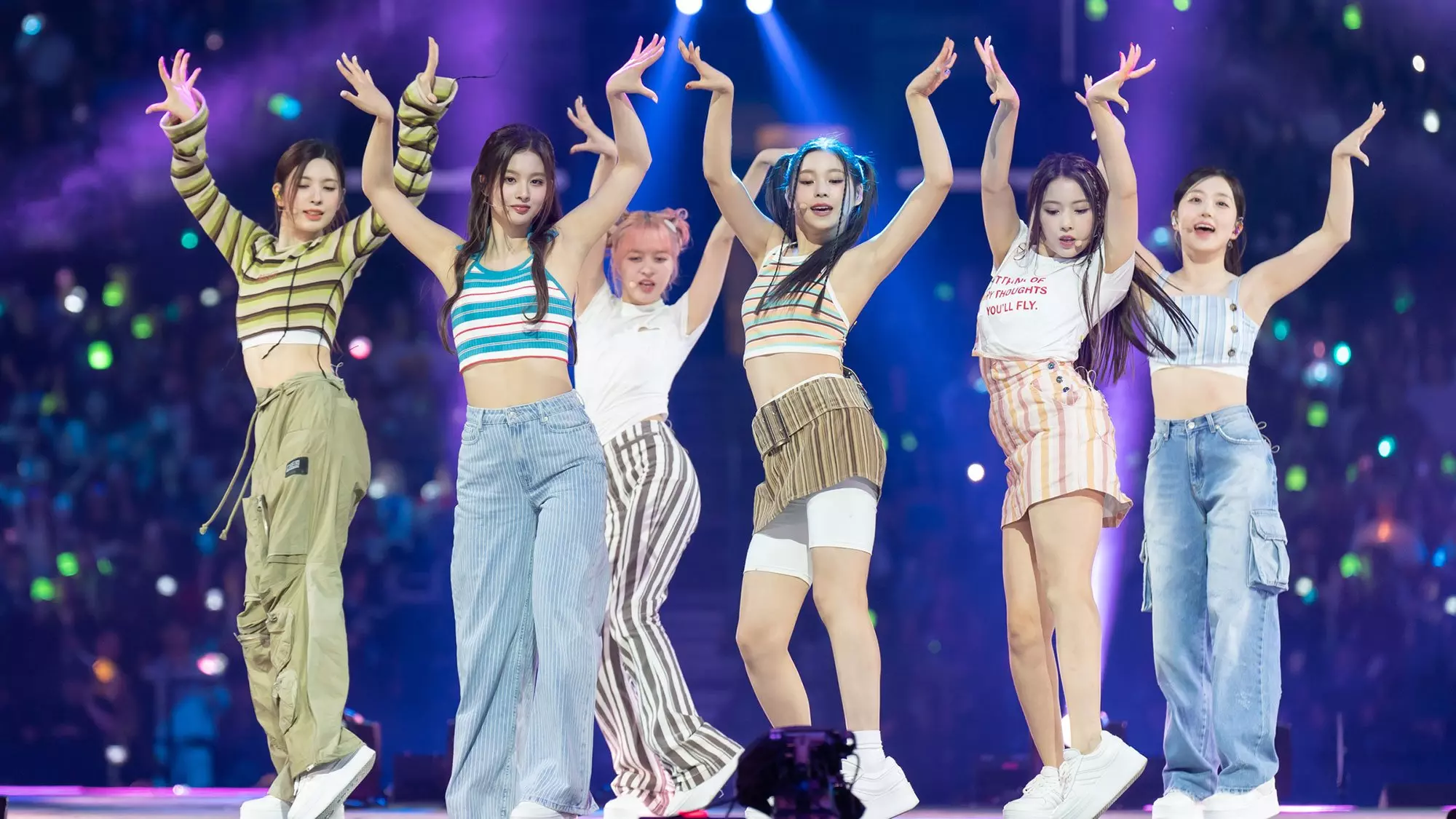
KCON L.A. 2024 Returns: Get Ready With This Playlist Featuring NCT 127, Zerobaseone, ENHYPEN, Zico & More
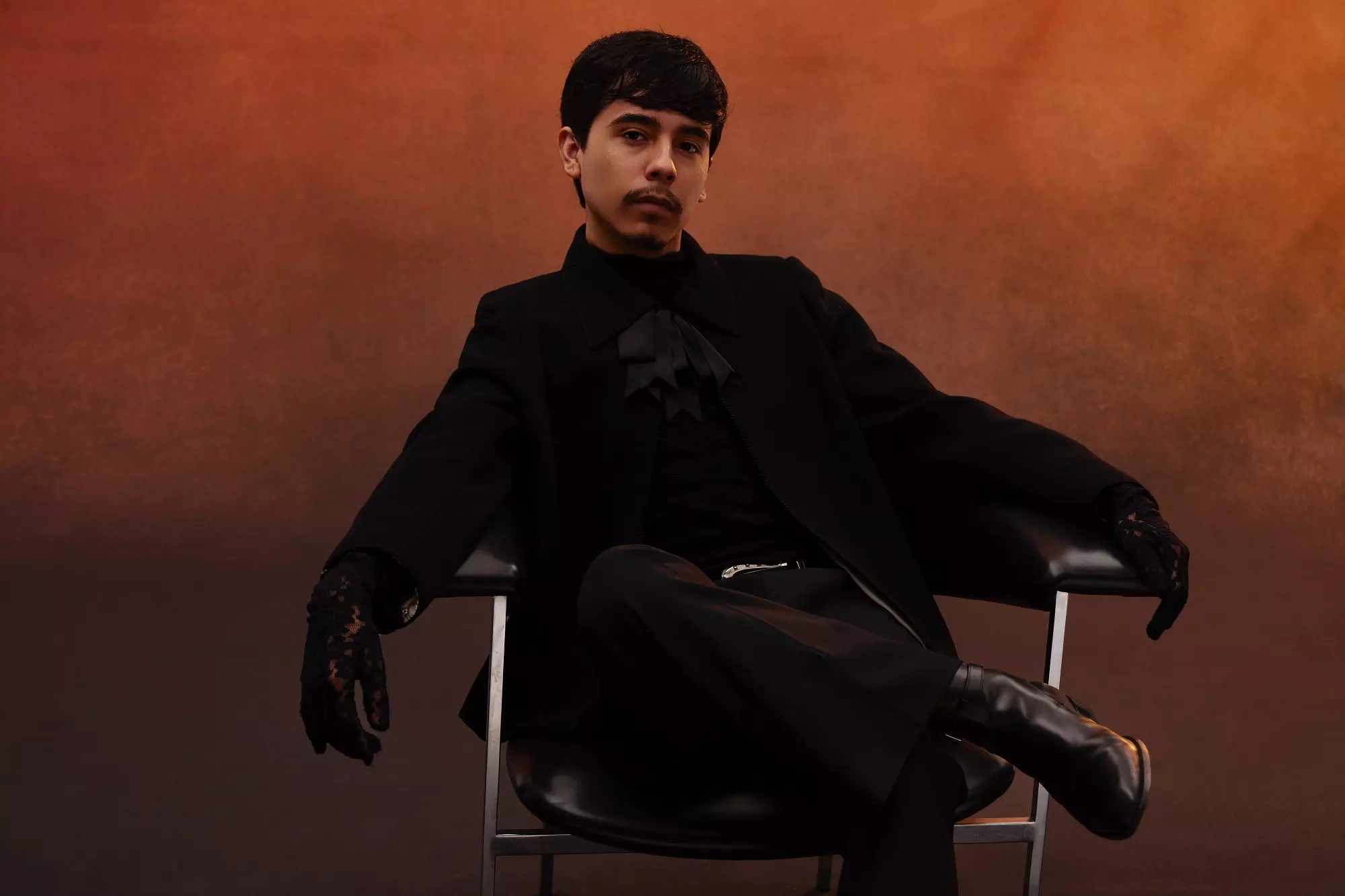
On 'Mirada,' Ivan Cornejo Redefines The Sound Of Sad Sierreño And Helps Fans Heal Through Music
